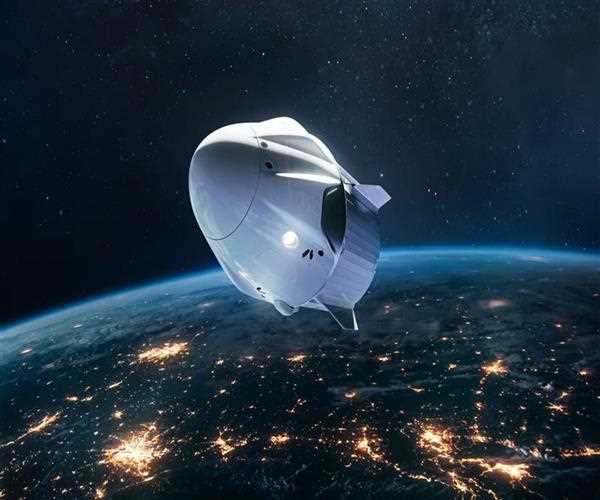
13-Apr-2023
How much is the space tourism costs?
Space tourism has long been a dream of many people around the world, and in recent years, several companies have emerged that are working to make this dream a reality. While the idea of traveling to space may seem exciting and glamorous, it's important to consider the costs associated with space tourism.
The cost of space tourism can vary widely depending on the company, the destination, and the type of experience offered. Some companies, such as Virgin Galactic, are offering suborbital flights that reach an altitude of around 50 miles above the Earth's surface. The cost of a ticket on a Virgin Galactic flight is currently estimated to be around $250,000. Other companies, such as SpaceX, are working to develop orbital flights that would allow tourists to spend several days in space. The cost of a SpaceX flight has not yet been announced, but it is expected to be significantly higher than the cost of a suborbital flight.
"Work is in progress around India’s very own space tourism module, which is both safe and reusable," stated S Somnath, chairman of the Indian Space Research Organization (ISRO). The ISRO chairman also provided a timeline for the space travel module, stating that enthusiasts will be able to travel to space by 2030. The trip is expected to cost Rs 6 crore, according to estimates.
"It is likely that the cost of each ticket will be around Rs 6 crore. Somnath stated, "Those who go on the trip will also be able to call themselves astronauts."
According to scientists at ISRO, the Indian National Space Promotion and Authorization Centre (IN-SPACe) is likely to work with private companies to develop the space travel module.
We are also gaining knowledge from our Reusable Launch Vehicle—Technology Demonstrator (RLV-TD) in addition to the Gaganyaan mission. Somnath stated, "We have to ensure that these trips are extremely safe and that our technologies pass safety clearances because we are bringing space experiences to the common people."
If I talk about SpaceX, that is founded by Elon Musk, has successfully completed its initial missions to the ISS. Two NASA astronauts left Earth aboard the Dragon spacecraft and spent two months on the International Space Station. Space tourism and other business interests will soon be able to use the ISS, according to NASA's recent announcement. Since then, billionaires have been abuzz. For $35,000 per night, confidential space travelers will actually want to remain for as long as 30 days on board the space station while going on US rocket. A return ticket for a flight with Boeing and Elon Musk's SpaceX company would cost around $60 million.
Cost: $60 million in total, plus $35,000 per night
According to high-ranking ISRO personnel, work on the government's space tourism module is "gaining momentum." They added that the tickets will be accessible at "serious costs" in the worldwide market.
While the cost of space tourism may seem exorbitant, it's important to remember that these experiences are currently being offered to a very small, exclusive group of individuals. Space tourism is not intended to be a mass market product, but rather a high-end luxury experience for those who can afford it.
In addition to the high ticket price, there are also significant costs associated with the development and operation of space tourism vehicles. Developing and testing new space vehicles requires a significant amount of time and resources, as well as a high degree of technical expertise. The cost of launching a single rocket can be millions of dollars, and the development and maintenance of space tourism vehicles will likely require ongoing investment and innovation.
There are also significant safety risks associated with space tourism. While space travel has become safer in recent years, it is still a risky endeavor that requires a high degree of technical skill and experience. Space tourism vehicles must be designed to withstand extreme conditions and must be equipped with advanced safety features to protect passengers in the event of an emergency.
Another factor to consider when assessing the cost of space tourism is the potential environmental impact of these flights. Rockets and other space vehicles generate significant amounts of pollution, including carbon dioxide and other greenhouse gases. While the environmental impact of space tourism is still being studied, it's clear that these flights will have an impact on the environment and will require careful management to mitigate their effects.
In conclusion, space tourism is an exciting and innovative new industry that is poised to grow in the coming years. While the cost of space tourism is currently very high, it is likely that this will come down over time as the technology becomes more advanced and the industry becomes more competitive. However, it's important to remember that space tourism is not without its risks and challenges, and that it will require ongoing investment and innovation to ensure its safety and sustainability.

SEO and Content Writer
I am Drishan vig. I used to write blogs, articles, and stories in a way that entices the audience. I assure you that consistency, style, and tone must be met while writing the content. Working with the clients like bfc, varthana, ITC hotels, indusind, mumpa, mollydolly etc. has made me realized that writing content is not enough but doing seo is the first thing for it.
Join Our Newsletter
Subscribe to our newsletter to receive emails about new views posts, releases and updates.
Copyright 2010 - 2026 MindStick Software Pvt. Ltd. All Rights Reserved Privacy Policy | Terms & Conditions | Cookie Policy